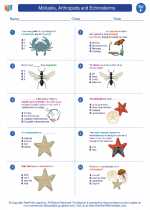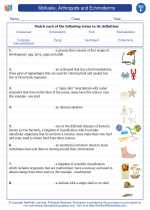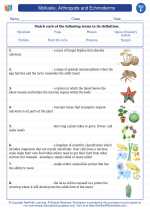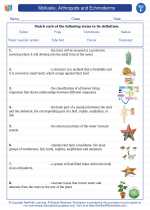Aggression
Aggression is a behavior characterized by verbal or physical hostility towards others. It can be a response to frustration, a way to assert dominance, or a form of self-defense. Aggression can be expressed in various forms, including physical violence, verbal abuse, and passive-aggressive behavior.
Causes of Aggression
There are several factors that can contribute to aggressive behavior:
- Biological Factors: Genetics, brain chemistry, and hormonal imbalances can influence aggression.
- Environmental Factors: Exposure to violence, abuse, or stressful situations can trigger aggressive behavior.
- Social Factors: Peer pressure, societal norms, and cultural influences can impact the likelihood of displaying aggression.
- Psychological Factors: Mental health disorders, such as conduct disorder or oppositional defiant disorder, can contribute to aggression.
Types of Aggression
Aggression can be categorized into different types based on the underlying motives:
- Instrumental Aggression: This type of aggression is goal-oriented and is used to achieve a specific outcome, such as obtaining a desired object or asserting dominance.
- Reactive Aggression: Also known as impulsive aggression, this type is a response to a perceived threat, frustration, or provocation.
- Relational Aggression: This form of aggression involves damaging someone's social relationships or status, often through gossip, exclusion, or manipulation.
Effects of Aggression
Aggressive behavior can have detrimental effects on individuals and society as a whole:
- Physical harm to others
- Emotional trauma and psychological distress
- Strained relationships and social conflicts
- Legal consequences
- Impact on mental and physical health
Managing Aggression
There are several strategies for managing and reducing aggression:
- Developing emotional regulation skills
- Seeking therapy or counseling
- Creating a supportive and non-violent environment
- Teaching conflict resolution and communication skills
- Implementing intervention programs for at-risk individuals
Understanding the causes and consequences of aggression is essential for promoting a peaceful and harmonious society.
.◂Science Worksheets and Study Guides Sixth Grade. Mollusks, Arthropods and Echinoderms
Study Guide Mollusks, Arthropods and Echinoderms
Mollusks, Arthropods and Echinoderms  Activity Lesson
Activity Lesson Mollusks, Arthropods & Echinoderms
Mollusks, Arthropods & Echinoderms  Worksheet/Answer key
Worksheet/Answer key Mollusks, Arthropods and Echinoderms
Mollusks, Arthropods and Echinoderms  Worksheet/Answer key
Worksheet/Answer key Mollusks, Arthropods and Echinoderms
Mollusks, Arthropods and Echinoderms  Worksheet/Answer key
Worksheet/Answer key Mollusks, Arthropods and Echinoderms
Mollusks, Arthropods and Echinoderms  Worksheet/Answer key
Worksheet/Answer key Mollusks, Arthropods and Echinoderms
Mollusks, Arthropods and Echinoderms  Vocabulary/Answer key
Vocabulary/Answer key Mollusks, Arthropods and Echinoderms
Mollusks, Arthropods and Echinoderms  Vocabulary/Answer key
Vocabulary/Answer key Mollusks, Arthropods and Echinoderms
Mollusks, Arthropods and Echinoderms  Vocabulary/Answer key
Vocabulary/Answer key Mollusks, Arthropods and Echinoderms
Mollusks, Arthropods and Echinoderms  Vocabulary/Answer key
Vocabulary/Answer key Mollusks, Arthropods and Echinoderms
Mollusks, Arthropods and Echinoderms  Vocabulary/Answer key
Vocabulary/Answer key Mollusks, Arthropods and Echinoderms
Mollusks, Arthropods and Echinoderms  Vocabulary/Answer key
Vocabulary/Answer key Mollusks, Arthropods and Echinoderms
Mollusks, Arthropods and Echinoderms  Vocabulary/Answer key
Vocabulary/Answer key Mollusks, Arthropods and Echinoderms
Mollusks, Arthropods and Echinoderms 

 Activity Lesson
Activity Lesson
 Worksheet/Answer key
Worksheet/Answer key
 Worksheet/Answer key
Worksheet/Answer key
 Worksheet/Answer key
Worksheet/Answer key
 Worksheet/Answer key
Worksheet/Answer key
 Vocabulary/Answer key
Vocabulary/Answer key
 Vocabulary/Answer key
Vocabulary/Answer key
 Vocabulary/Answer key
Vocabulary/Answer key
 Vocabulary/Answer key
Vocabulary/Answer key
 Vocabulary/Answer key
Vocabulary/Answer key
 Vocabulary/Answer key
Vocabulary/Answer key
 Vocabulary/Answer key
Vocabulary/Answer key

The resources above cover the following skills:
LIFE SCIENCE
From Molecules to Organisms: Structures and Processes